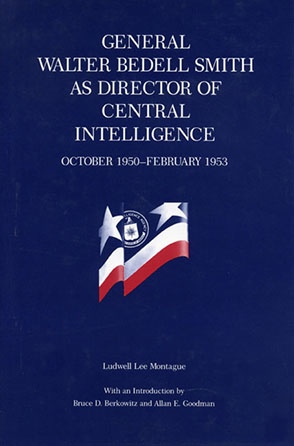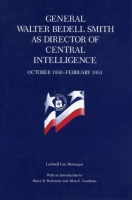
General Walter Bedell Smith as Director of Central Intelligence, October 1950–February 1953
Ludwell L. Montague
General Walter Bedell Smith as Director of Central Intelligence, October 1950–February 1953
Ludwell L. Montague
This book continues the official history of the CIA begun in Arthur Darling's The Central Intelligence Agency.
- Description
- Subjects
Ludwell Lee Montague's book is one of the first documents, along with Darling's history, to be declassified and made available under the CIA's Historical Review Program, launched in 1985. Montague was a leading government official who participated in the interdepartmental debate over the postwar organization of U.S. intelligence that occurred in 1945. He drafted many of the policies of the Joint Chiefs of Staff during this bureaucratic struggle, including JIC 239/5, the plan that was also the basis for the establishment of the Central Intelligence Group, the predecessor of the CIA. He served as General Smith's executive assistant when Smith was appointed Director of Central Intelligence in 1950.
Montague contends that Smith is so important to the development of the intelligence community that the history of the community can legitimately be thought of as "pre-Smith and post-Smith." The book focuses on the initiatives that Smith implemented in order to reform the U.S. intelligence community, which was under heavy criticism at the time for a series of intelligence failure. The reorganization of the intelligence community described here contains, with just a few exceptions, the predecessors of the major organizational components of today's CIA.
This book serves as an important companion to Arthur Darling's book in that it provides both background material and Montague's opinion concerning how Darling's study came into existence. Most of this work survived the declassification process relatively intact to give us a detailed analysis of a critical period in the development of the intelligence community.
Mailing List
Subscribe to our mailing list and be notified about new titles, journals and catalogs.



